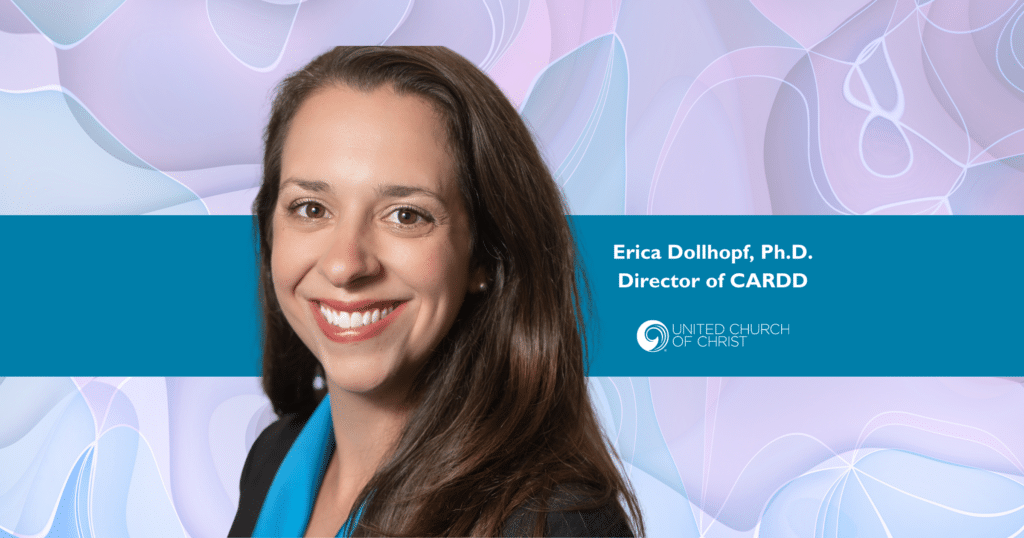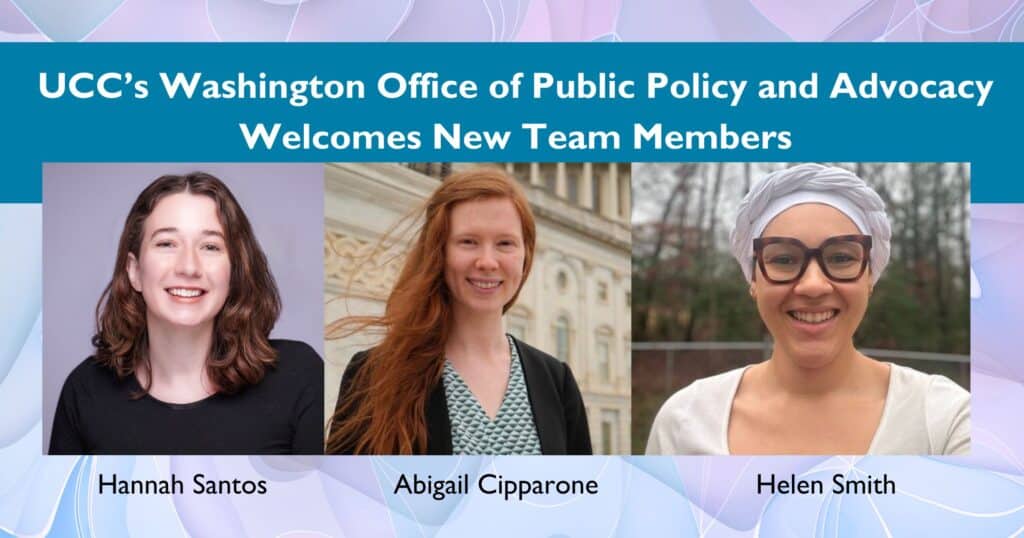Undercurrent strong in divestment debate
Thompson, who lived in Hawaii before moving to Montana, told the delegates that “our money talks. Our money says where our interest lies. Our money determines what grows. Are we profiting from the growth of justice or of violence?”
The other resolution urges selective divestment from companies involved in Israel’s occupation of the West Bank and Gaza. It was presented on behalf of the board of directors of the Penn West Conference, by the Rev. William Thwing, pastor of the Ebensburg, Penn., First United Church of Christ. He recounted how the second resolution grew out of a prayerful response to 9/11 that led to research on “why this tragedy happened to us.”
“We came to the conclusion that the struggle in Israel and Palestine is a keystone issue as we deal with Muslims around the world,” he said.
Thwing said the Penn West committee worked closely with the American Jewish Committee in the area, accepting several suggestions from those discussions. He will propose an amendment to the resolution when it is discussed in the Synod committee suggesting that any funds divested be reinvested for peace with justice in Israel and Palestine.
Several speakers during the hearing echoed that concern, but George Hudis, a visitor from the Sabeel Liberation Theology chapter in Honolulu, said, “I’m Jewish. My parents were survivors of the Holocaust. My grandparents died in German concentration camps. My Jewish faith calls me to pursue justice; both resolutions provide a witness to justice.”
“Oh, I have no illusions that all the investments of the United Church of Christ can change the policy of the occupation in Israel,” Hudis said. “But it will be a vehicle for discussion. There needs to be discussion with Jews throughout the United States.”
Jonathan Kuttab, a Palestinian lawyer and lay theologian, cited violence on both sides in the Middle East when he said, “Morally responsible investment is central. We are stewards over all our resources, just as Christ is Lord of all our lives.”
Kuttab, a Sabeel board member, spoke of the justice implication of the UCC witness. “We must trust God. We must concentrate on being obedient. If we trust in God, whether our efforts are successful or not is not the issue.”
Speaking of a recent article in the Jerusalem Post calling the founder of Sabeel anti-semitic, Kuttab warned against hatred of Jews. But he said, “Your motives may be misunderstood, just as Naim Atteek’s motives have been misunderstood. If your motives are morally responsible, you will receive a great big blessing. Don’t forget that Jesus promised, ‘Blessed are you when people revile you and persecute you and utter all kinds of evil against you falsely for righteousness sake, for great is your reward in heaven.'”
Dexter Van Zile, of the Massachusetts Conference, directs the David Project’s Judeo-Christian Alliance. He said the “UCC leaders have accepted uncritically the Palestinian narrative. For several years, our church has portrayed Palestinian suffering as a consequence of Israel’s misdeeds while ignoring the corruption of the Palestinian Authority.”
He acknowledged that he had written a letter published last week in the Jerusalem Post stating that “the leadership of mainline Protestant denominations in the U.S. have helped breathe new life into the teachings of contempt for Jews [by] their indiscriminate support for Palestinian theologians like Naim Atteek” who spoke at the 24th General Synod in Minneapolis in 2003.
Ateek, an Anglican priest, is the founder of the Sabeel Liberation Theology Center. Sabeel is a UCC Wider Ministries partner organization.
The hearing was convened by the Rev. Lillian Daniel, pastor of the Glen Ellyn, Ill., UCC, who will also chair the Synod committee that will deal formally with the two proposals.
Hours before the 25th General Synod opened, Rabbi Abraham Cooper, associate dean of the Los Angeles-based Simon Wiesenthal Center, held a press conference in Atlanta. He called for the defeat of what it called “these unfair and dangerous initiatives.”
Cooper said the resolutions come at a time when Israel is dismantling all settlements in Gaza and when Israel’s Prime Minister Ariel Sharon and the Palestinian Authority President Mahmoud Abbas are working to further a real and lasting peace. He called the resolutions “counterproductive” and “deeply troubling.”
The Wiesenthal Center passed a petition on the subject to John Thomas, president and general minister of the UCC. It claimed 20,000 signatures on the petition.
Related News
Poor People’s Campaign Moral March takes to the streets of Washington, D.C.
The Poor People's Campaign Moral March was held in Washington, D.C. on June 29, attended by...
Read MoreUCC’s director of CARDD receives national award for research
The United Church of Christ’s Erica Dollhopf, director of The Center for Analytics, Research...
Read MoreThree new staffers join UCC Washington, D.C. office
The United Church of Christ’s Washington, D.C. Office of Public Policy and Advocacy recently...
Read More

